What is Warren Buffett’s net worth?
Warren Buffett, known as the “Oracle of Omaha” and considered one of the most successful investors of all time, will step down as Berkshire Hathaway’s CEO by the end of the year. How did he make his billions?

Oojal Dhanjal
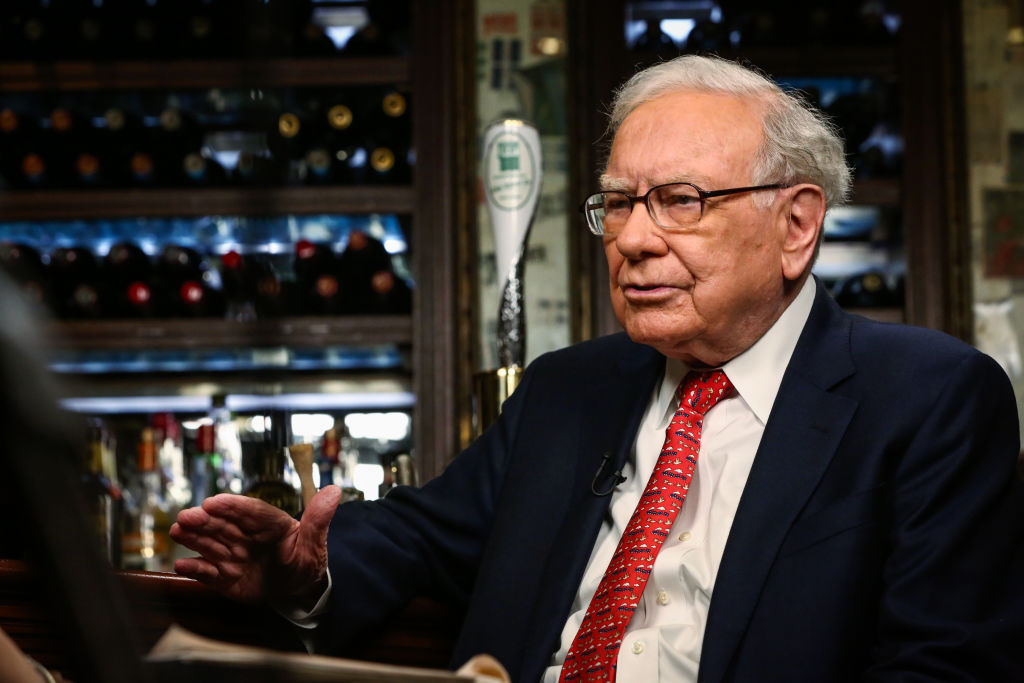
Get the latest financial news, insights and expert analysis from our award-winning MoneyWeek team, to help you understand what really matters when it comes to your finances.
You are now subscribed
Your newsletter sign-up was successful
Want to add more newsletters?

Twice daily
MoneyWeek
Get the latest financial news, insights and expert analysis from our award-winning MoneyWeek team, to help you understand what really matters when it comes to your finances.

Four times a week
Look After My Bills
Sign up to our free money-saving newsletter, filled with the latest news and expert advice to help you find the best tips and deals for managing your bills. Start saving today!
Legendary investor Warren Buffett has built an enormous fortune and is one of the richest people in the world.
His recent decision to step down as CEO of Berkshire Hathaway has sent shockwaves through the financial world, causing the 94-year-old’s net worth to shrink.
But despite the setback, he is still worth $160 billion, and ranks in the top ten on the Bloomberg Billionaires Index, just behind Microsoft co-founder Bill Gates. Buffett has consistently trailed Gates on the rich list since it launched in 2012.
MoneyWeek
Subscribe to MoneyWeek today and get your first six magazine issues absolutely FREE

Sign up to Money Morning
Don't miss the latest investment and personal finances news, market analysis, plus money-saving tips with our free twice-daily newsletter
Don't miss the latest investment and personal finances news, market analysis, plus money-saving tips with our free twice-daily newsletter
As the CEO and largest shareholder of Berkshire Hathaway, Warren Buffett has made several successful strides, including generating average annual returns of 19.8% between 1965 and 2023 — roughly double what the S&P 500 gained over the same period, according to The Motley Fool.
We look at how Warren Buffett built his fortune and what his upcoming retirement means for investors and Berkshire Hathaway.
Warren Buffett’s early years
Born in 1930 in Omaha, Nebraska, Buffett showed an early interest in business. Buffett's father was a stockbroker and served as a role model for the young investor.
As a child, he would buy six packs of Coca-Cola for 25 cents and sell each bottle for a nickel, making a tidy profit. He also started a pinball business and purchased the newspaper Buffalo News in 1977.
Buffett grew his newspaper business over the years with the addition of local papers — but in 2020, he decided to sell 31 newspapers for $140 million.
After high school, Buffett attended the University of Nebraska but transferred to the University of Pennsylvania's Wharton School of Business.
In 1951, Buffett received his master's degree in economics from Columbia University. At age 24, he received a job offer from his mentor Benjamin Graham, with a salary of $12,000, reports Dividend Growth Investor.
His annual salary was thrice the annual median income for an average family in 1954, according to US Census Bureau data, which means Buffett was already well on his way towards accumulating wealth. Two years later, his net worth was already $140,000.
Warren Buffett's early partnerships significantly influenced his success as an investor and businessman. In the 1950s and 1960s, Buffett formed several partnerships that allowed him to pool his resources with other like-minded investors. These partnerships enabled him to invest in larger and more complex deals than he would have been able to do on his own.
How Benjamin Graham inspired Warren Buffett
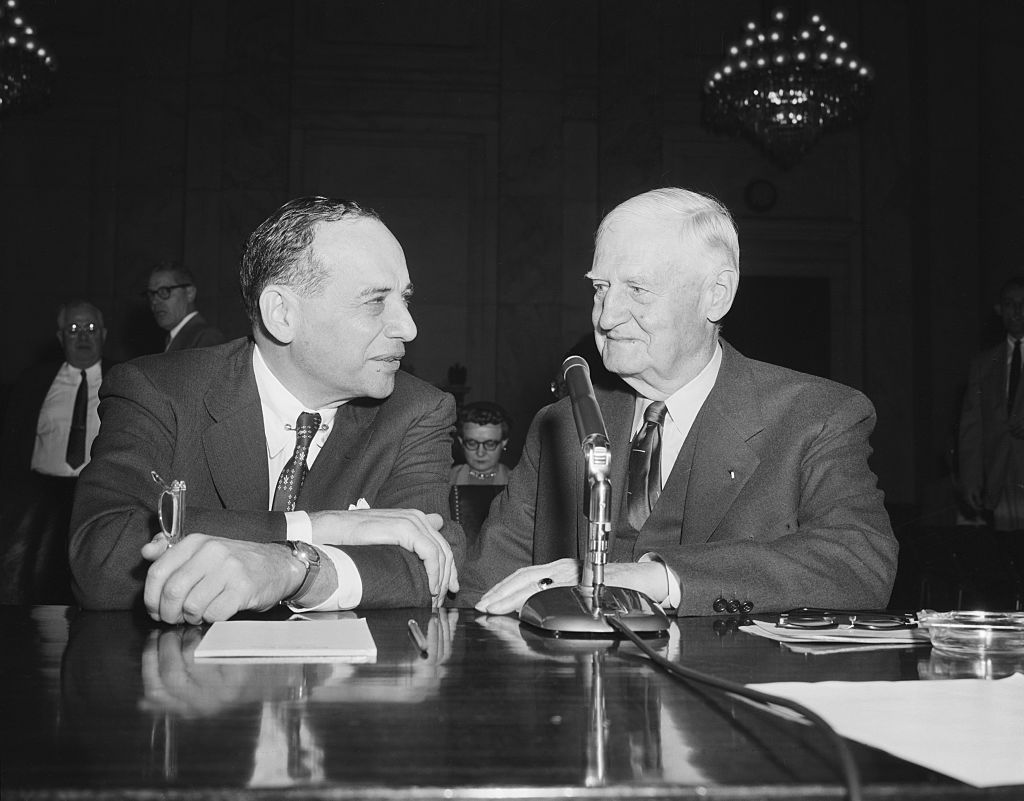
Benjamin Graham With Gen. Robert E. Wood
Buffett studied at Columbia University’s Business School under Benjamin Graham, a renowned value investor who would later become his mentor.
Benjamin Graham is considered to be the father of value investing. He began his career in finance in the early 1920s, although he quickly realised that most investors were focused on short-term gains and speculation rather than investing in companies with strong fundamentals, such as robust balance sheets.
With this knowledge, he went on to develop his own investment philosophy, focusing on buying undervalued stocks. He believed buying equities cheaply, holding them for the long term and selling them when the market had realised the value was a great way to make money. Put simply, Graham believed that by carefully analysing a company's financial statements and other fundamental data, he could identify stocks trading at a discount to their true value.
This mentality shaped Warren Buffett's view of the world from a young age.
How Warren Buffett built Berkshire Hathaway
One of his most significant deals was Berkshire Hathaway. When Buffett first started buying the stock in the late 1950s, the business was a struggling textile manufacturer. He decided to try to buy enough shares in the business to force management to buy him out at a higher price – earning a handsome profit.
Management refused and Buffett lashed out, buying control and kicking the former management out.
Over the next few years, Warren Buffett wrestled with the business. He kept a tight rein on costs and used any excess cash to expand and diversify.
He started building on his empire with the acquisition of two small insurance groups. These companies gave Buffett an edge. Insurers have large portfolios of investments, giving Buffett a lot of flexibility around where and when he could invest. Over the years, the company has continued to acquire other insurance companies, including GEICO and General Re.
Despite these additional investments and diversification, Berkshire’s insurance businesses remain at the core of the group today. Berkshire Hathaway also owns a load of other well-known companies, including the battery brand Duracell and Dairy Queen ice cream parlours. Buffett now has 41 stocks in his Berkshire Hathaway portfolio.
Warren Buffett’s investing style
Buffett is known for his successful investing style. Historically, he has searched for undervalued companies that have a strong foundation and a competitive edge within a specific market. He then invests in these companies for the long term.
As a result, he has made impressive returns. Some of Berkshire Hathaway’s famous investments include Apple, Coca-Cola, American Express, Moody’s and several Japanese trading houses like Mitsubishi.
Looking to the future, Buffett has said he is not keen on the use of artificial intelligence (AI).
According to Motley Fool, Buffett expressed the opinion at the May 2024 Berkshire Hathaway shareholder meeting, comparing AI to a genie in a bottle: “It’s partway out of the bottle. We may wish we’d never seen that genie, or it may do wonderful things.”
Buffett is also known for his philanthropic efforts, including his commitment to giving away the majority of his wealth through the Giving Pledge – a commitment by some of the world's wealthiest individuals and families to give away the majority of their wealth to address society's most pressing problems.
We look at how to rival Warren Buffett when it comes to funds and trusts, and how to invest like him.
Who will replace Warren Buffett at Berkshire Hathaway?
At Berkshire Hathaway’s annual meeting on 3 May, the investor announced that he would retire as CEO, in a shock to shareholders and the rest of the world.
Berkshire Hathaway announced that Greg Abel would be appointed as the next president and CEO. The 62-year-old currently serves as the chairman and CEO of Berkshire Energy and the vice-chairman of its non-insurance operations.
In his farewell address, Buffett said: “I think the time has arrived where Greg should become the chief executive officer of the company at year end.”
However, he insisted he would keep his fortunes invested in the company. “I have no intention – zero – of selling one share of Berkshire Hathaway. I will give it away eventually. “The decision to keep every share is an economic decision because I think the prospects of Berkshire will be better under Greg’s management than mine.”
As per Forbes, the conglomerate’s shares dropped by 5%, taking away more than $30 billion from its market capitalisation. Buffett’s fortunes also shrank by $8.9 billion.
The good news for investors is that Buffett will still serve as the chairman of the board once he retires, Berkshire confirmed on 5 May.
Get the latest financial news, insights and expert analysis from our award-winning MoneyWeek team, to help you understand what really matters when it comes to your finances.
Jacob is an entrepreneur, hedge-fund expert and the founder and CEO of ValueWalk.
What started as a hobby in 2011 morphed into a well-known financial media empire focusing in particular on simplifying the opaque world of the hedge fund.
Before devoting all his time to ValueWalk, Jacob worked as an equity analyst specialising in mid- and small-cap stocks. Jacob also worked in business development for hedge funds.
He lives with his wife and five children in New Jersey.
Jacob only invests in broad-based ETFs and mutual funds to avoid any conflict of interest that could arise from buying individual stocks.
- Oojal DhanjalEditorial Content Producer
-
 Should you buy an active ETF?
Should you buy an active ETF?ETFs are often mischaracterised as passive products, but they can be a convenient way to add active management to your portfolio
-
 Power up your pension before 5 April – easy ways to save before the tax year end
Power up your pension before 5 April – easy ways to save before the tax year endWith the end of the tax year looming, pension savers currently have a window to review and maximise what’s going into their retirement funds – we look at how
-
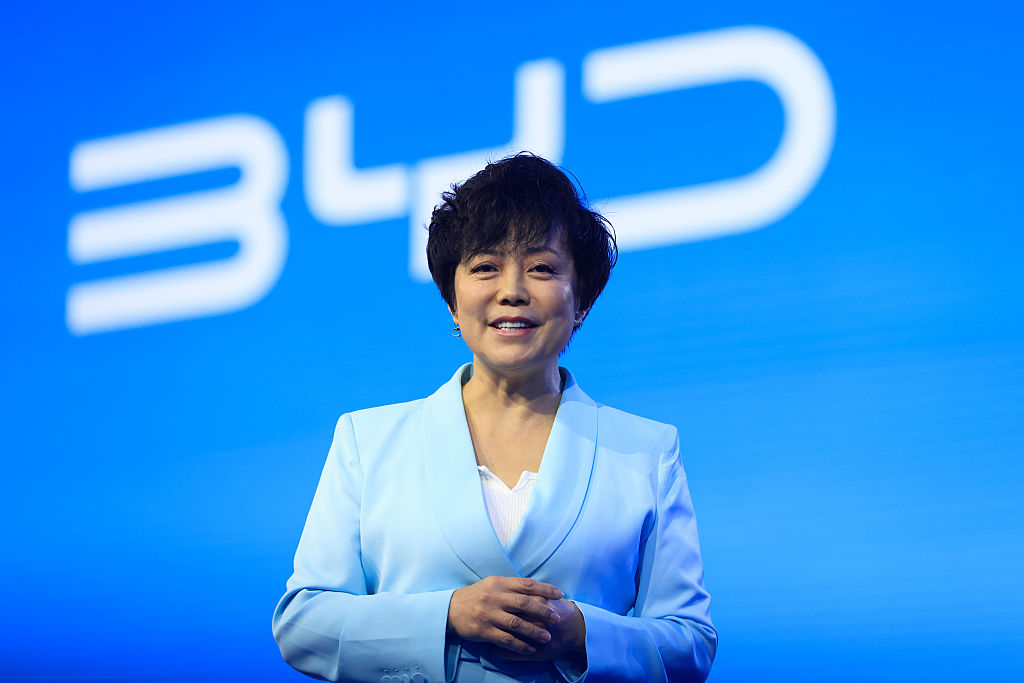 The Stella Show is still on the road – can Stella Li keep it that way?
The Stella Show is still on the road – can Stella Li keep it that way?Stella Li is the globe-trotting ambassador for Chinese electric-car company BYD, which has grown into a world leader. Can she keep the motor running?
-
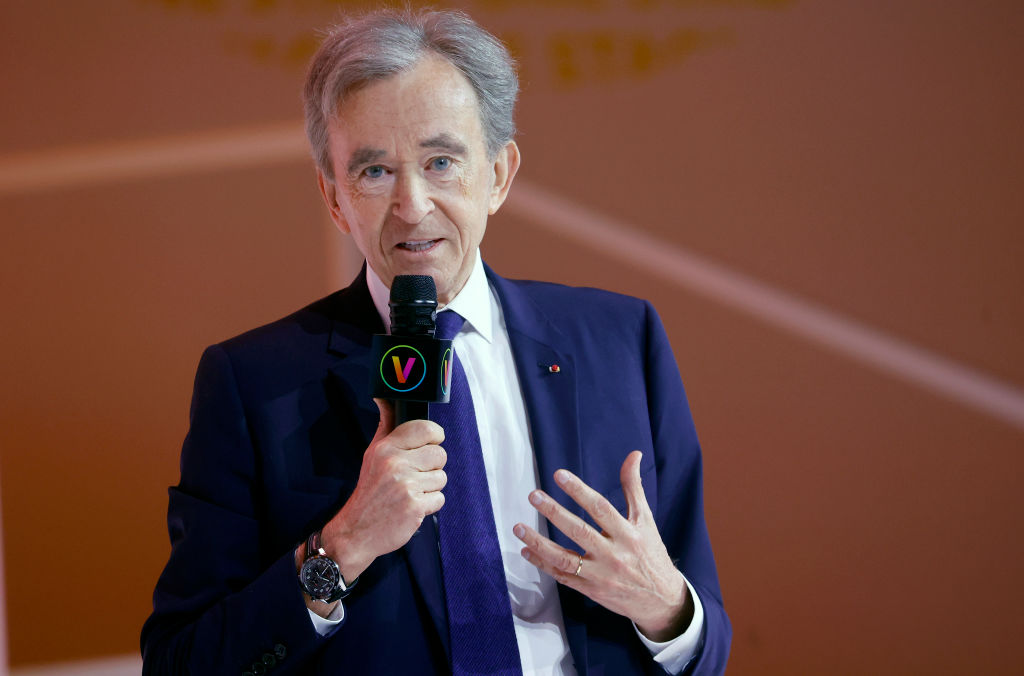 What is Bernard Arnault's net worth?
What is Bernard Arnault's net worth?We look into Bernard Arnault's net worth – how did he make his billions?
-
 VICE bankruptcy: how did it happen?
VICE bankruptcy: how did it happen?Was the VICE bankruptcy inevitable? We look into how the once multibillion-dollar came crashing down.
-
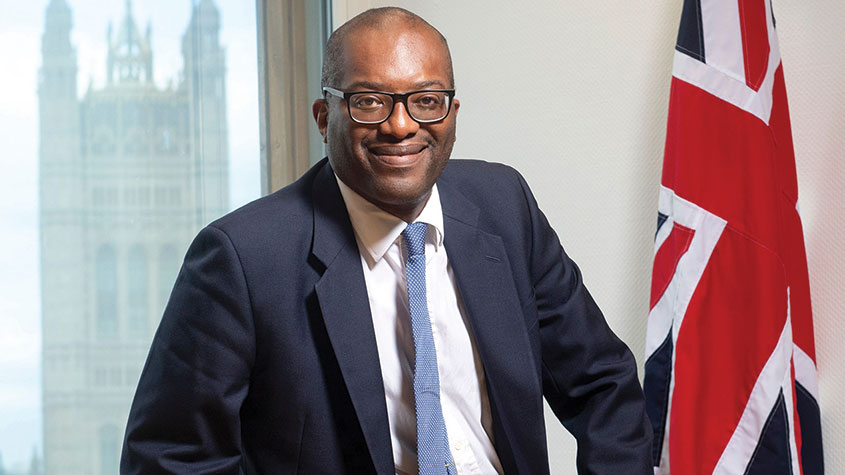 Kwasi Kwarteng: the leading light of the Tory right
Kwasi Kwarteng: the leading light of the Tory rightProfiles Kwasi Kwarteng, who studied 17th-century currency policy for his doctoral thesis, has always had a keen interest in economic crises. Now he is in one of his own making
-
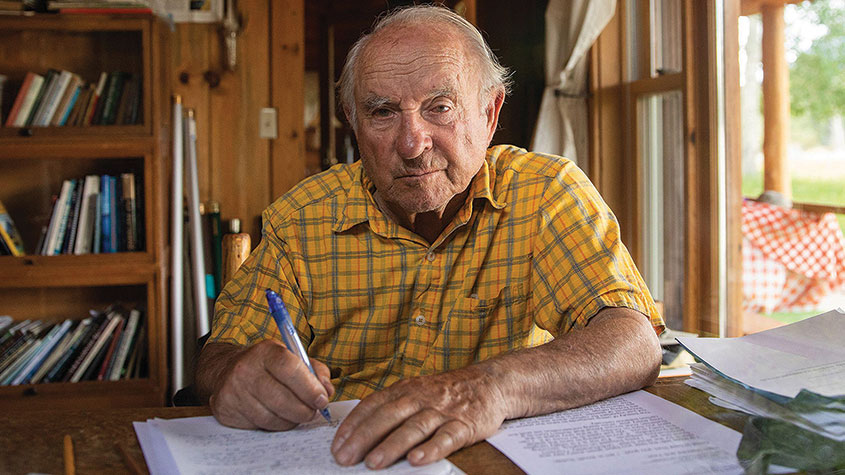 Yvon Chouinard: The billionaire “dirtbag” who's giving it all away
Yvon Chouinard: The billionaire “dirtbag” who's giving it all awayProfiles Outdoor-equipment retailer Yvon Chouinard is the latest in a line of rich benefactors to shun personal aggrandisement in favour of worthy causes.
-
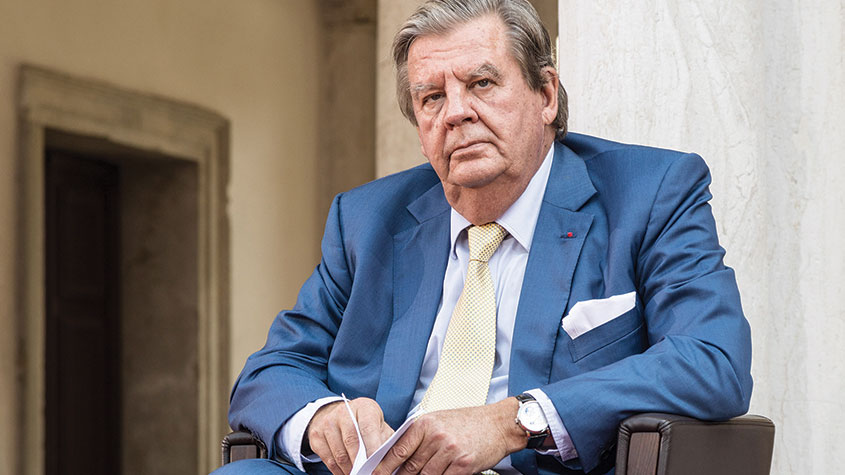 Johann Rupert: the Warren Buffett of luxury goods
Johann Rupert: the Warren Buffett of luxury goodsProfiles Johann Rupert, the presiding boss of Swiss luxury group Richemont, has seen off a challenge to his authority by a hedge fund. But his trials are not over yet.
-
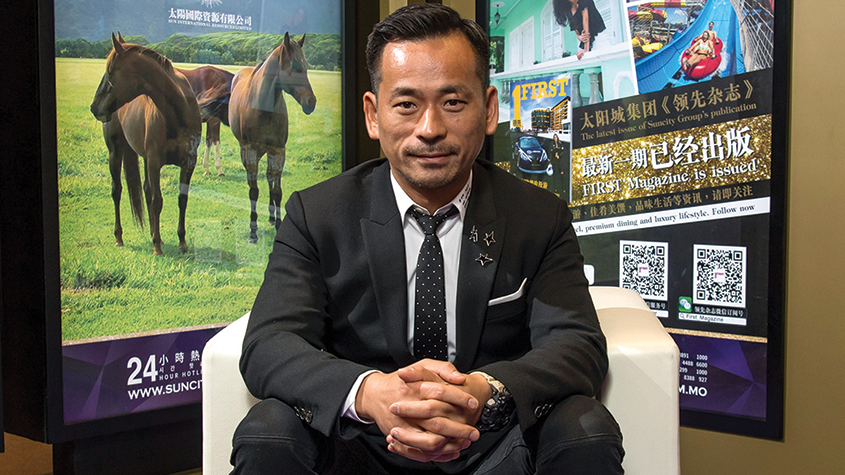 Profile: the fall of Alvin Chau, Macau’s junket king
Profile: the fall of Alvin Chau, Macau’s junket kingProfiles Alvin Chau made a fortune catering for Chinese gamblers as the authorities turned a blind eye. Now he’s on trial for illegal cross-border gambling, fraud and money laundering.
-
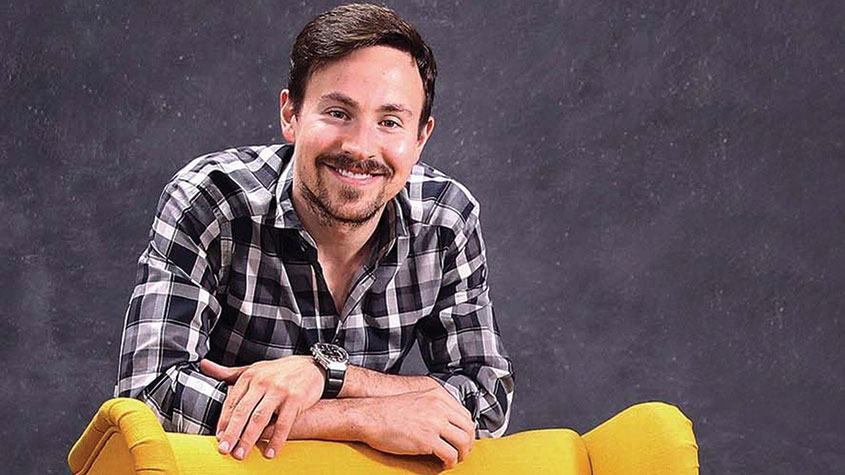 Ryan Cohen: the “meme king” who sparked a frenzy
Ryan Cohen: the “meme king” who sparked a frenzyProfiles Ryan Cohen was credited with saving a clapped-out videogames retailer with little more than a knack for whipping up a social-media storm. But his latest intervention has backfired.
